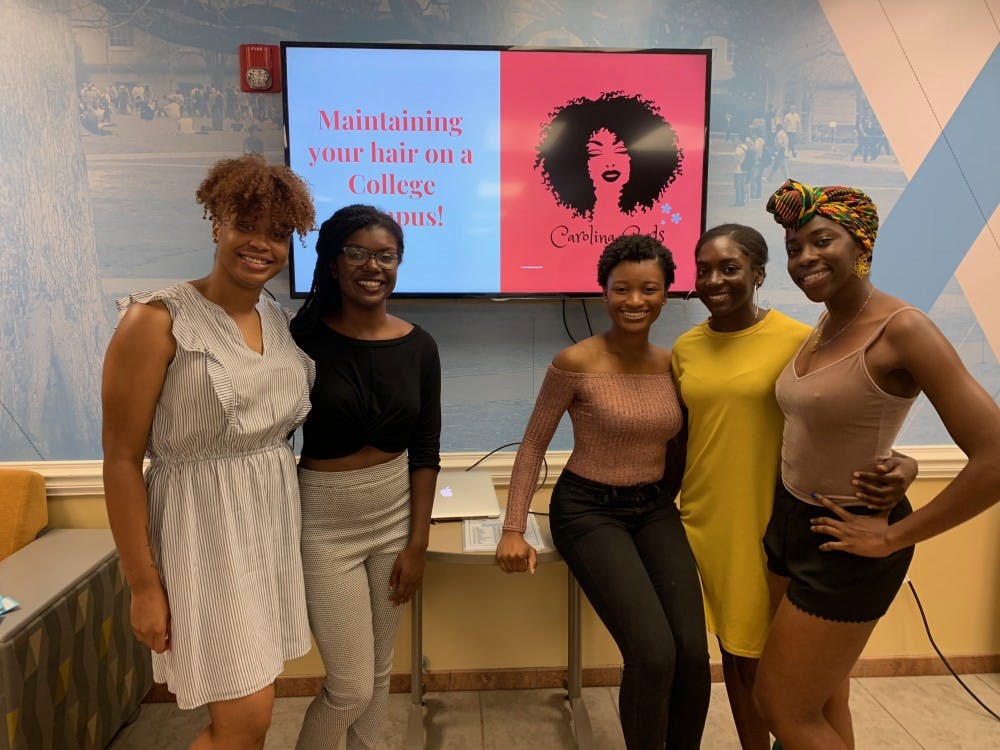Shortly after arriving at UNC in 2011, Jessica Boone cut all her processed hair off in what’s known as a big chop, allowing her curls to grow naturally. But she didn’t know much about taking care of her natural hair or know where to turn for advice.
“I was basically having an identity crisis trying to figure out who I was,” Boone said of her first semester at UNC.
Boone turned to the community around her. In 2011, she created a Facebook group called Natural Girls Discuss Natural Curls for women to share natural hair stylist recommendations, favorite products and hair care advice.
“It allowed me to meet other women who were experiencing some of the same things that I was experiencing,” Boone said. “For the first time, I had a community of girls who had the same questions I had.”
The Facebook group flourished quickly, and eventually its members began meeting in person. The group changed its name to Carolina Curls to promote gender inclusivity, said treasurer Kennedy Parkins.
Carolina Curls meetings are open to all UNC students and include product giveaways, hair tutorials and guest lectures from stylists and other professionals.
Parkins said that the group provides a space for attendees to have conversations about their own experiences with anything from hair care to stigmatization in the workplace.
During an internship at a Chapel Hill company, Angela Chin said that a white, female co-worker came up to her, commented on her hair and reached out and touched it — without asking.
“She grabs about three strands of my twists, and in that moment, I wasn’t really sure what to do,” Chin said.




